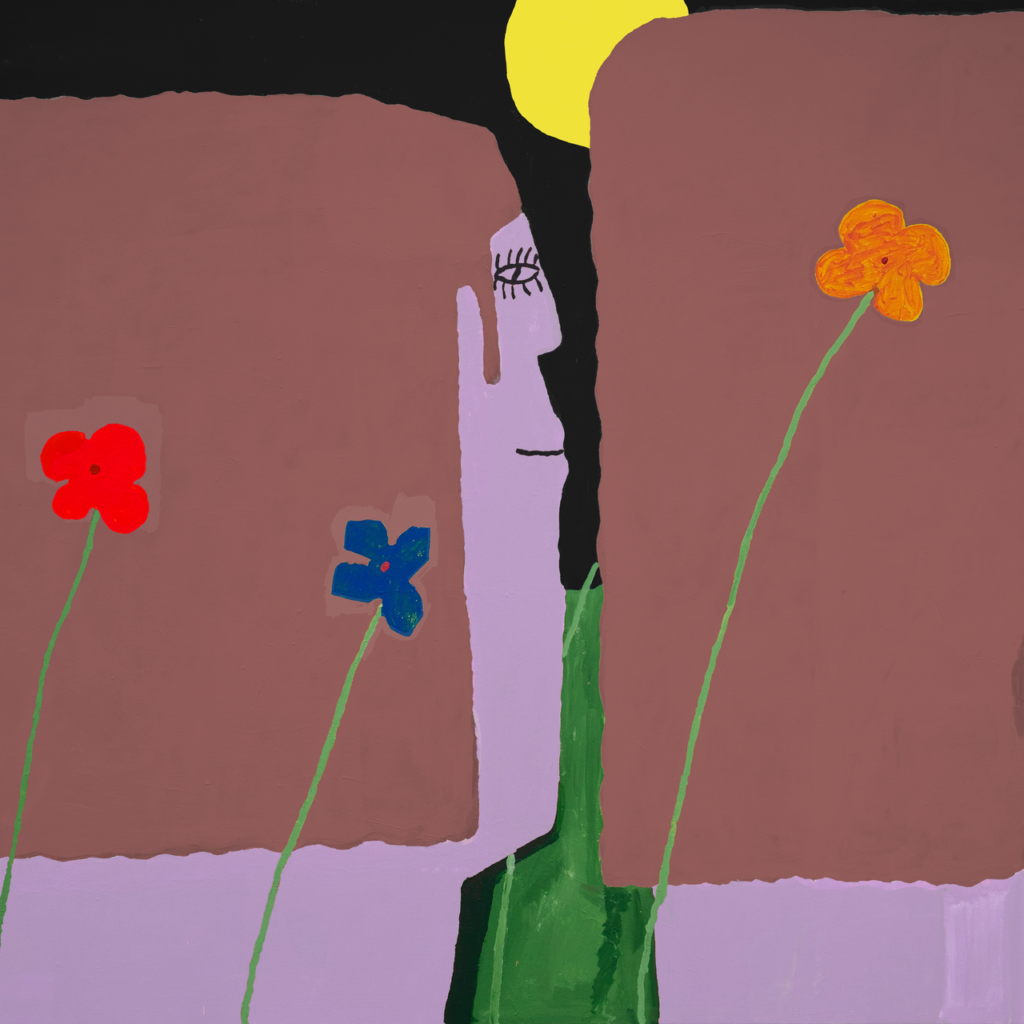Slow Pulp know how to ground extreme emotion. Their shoegaze-tinged country rock can transform euphoria into a mellow CBD gummy high, anchor combustible bursts of rage, and buoy depression. Their self-produced 2020 debut, Moveys, was a knot of self-deprecating lyricism beneath a weighted blanket of droopy guitars and shiny glimmers of violin and piano. When they weren’t questioning the point of it all, it seemed the Chicago-based quartet—Emily Massey, Henry Stoehr, Alex Leeds, and Teddy Mathews—was just trying to get by. On their follow-up, Yard, Slow Pulp still cozy up to the introspective, sometimes dark, side of life. But instead of succumbing to the depressive haze, they find the momentum to move forward.
With Yard, Slow Pulp solidify their laid-back sound. It’s a fine balance of ’90s alt-rock grit and melody, with the introspective, detail-driven storytelling of folk music. As on Moveys, doubt still creeps in. But this time, the sensation gets its own bubblegum pop song: “Take me out/Put me down,” Massey sings on the chorus of “Doubt,” turning the title into a stuttering, one-word refrain. On the combustible “Cramps,” Massey longs to inhabit someone else’s personality. The most captivating moment is when her vocals begin to split apart, like the force of her desire could consume her whole.
On the album’s anchor “Yard,” Massey swings at a punching bag dressed in her own image: “I’m a bitch/I’ve been a bitch,” she sighs. It’s Yard’s sparsest and most compelling track, as Massey takes us on a time-traveling tour of her past and present mistakes. “The neighbors hear my singing/I don’t care cause I’m much too baked/Their dogs are barking at the water/I yelled they messed up my take,” she sings over a sparse piano melody. These lighthearted reflections on the creative process eventually spiral into thorny self-realizations as she comes to terms with saying goodbye to her childhood home: “Didn’t know that I cared that much,” she says upon noticing the “for sale” sign. Often, Slow Pulp pair these diaristic reflections with lush arrangements, but here the thought is laid bare.
Thematically, Yard is concerned with the way people can drift into each other’s lives, for better or worse; sometimes they’re a one-hit wonder arriving unannounced, and sometimes they’re the classic we turn to at our lowest. “What if I tell you that/You keep playing in my head/Cause you’re a summer hit,” Massey muses on the candy-sweet love song “Slugs.” The softness of the arrangements—a patchwork of fuzzy power chords, perky piano keys, and easygoing drums—is like a breeze through the car window in mid-June. “Carina Phone 1000” describes the serendipitous magic of a long-lost friend who reaches out at just the right moment. Slow Pulp excel in this pared-back country-folk mode, with a sigh of pedal steel or a hug of harmonica, and vocals that feel like a secure embrace rather than a distant cry. When the pressure of life threatens to pop you like a tire, their clear-eyed sincerity keeps on rolling.
All products featured on Pitchfork are independently selected by our editors. However, when you buy something through our retail links, we may earn an affiliate commission.

